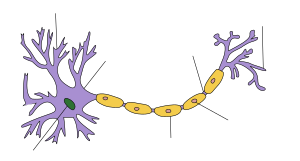Implantable Sensor for Brain Activity measurement

Wireless, implantable brain sensor, shown next to a U.S. quarter for size comparison. (NIH/David Borton, Brown University)
A compact, self-contained sensor recorded and transmitted brain activity data wirelessly for more than a year in early stage animal tests, according to a study funded by the National Institutes of Health. In addition to allowing for more natural studies of brain activity in moving subjects, this implantable device represents a potential major step toward cord-free control of advanced prosthetics that move with the power of thought. The report is in the the Journal of Neural Engineering.

